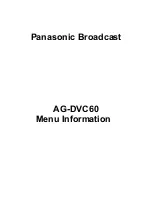
15
Concepts in Photography
How the aperture setting, shutter speed,
and ISO sensitivity control exposure
The aperture setting, shutter speed, and ISO sensitivity are closely
interconnected in photography. The aperture setting controls the
opening that regulates the light that enters the camera, while the shutter
speed determines the length of time that light is allowed to enter.
ISO sensitivity determines the speed at which the film reacts to light.
Together, these three aspects are described as the triangle of exposure.
A change in shutter speed, aperture value, or ISO sensitivity can be
offset by adjustments to the others to maintain the amount of light.
The results, however, change according to the settings. For example,
shutter speed is useful in expressing movement, aperture can control
the depth of field, and ISO sensitivity can control the graininess of a
photo.
Settings
Results
Shutter speed
Fast speed
= less light
Slow speed
= more light
Fast = still
Slow = blurry
Settings
Results
Aperture
Wide aperture
= more light
Narrow aperture
= less light
Wide = small depth of field
Narrow = large depth of field
ISO sensitivity
High sensitivity
= more sensitive to light
Low sensitivity
= less sensitive to light
High = more grainy
Low = less grainy
















































